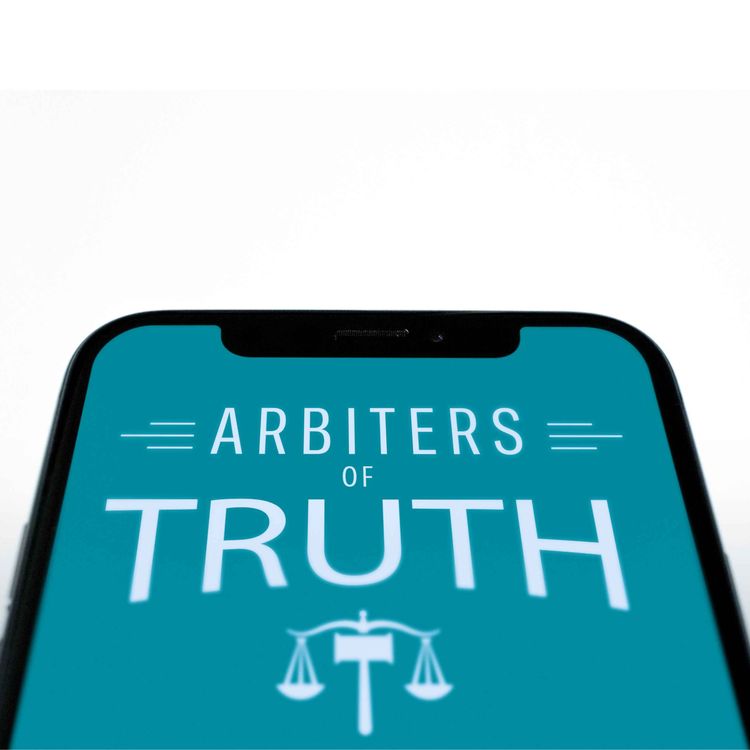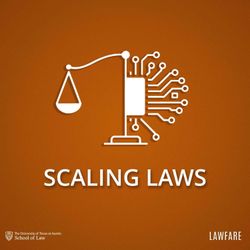Share

Scaling Laws
Rebroadcast: The Most Intense Online Disinformation Event in American History
If you’ve been watching the hearings convened by the House select committee on Jan. 6, you’ve seen a great deal about how the Trump campaign generated and spread falsehoods about supposed election fraud in 2020. As the committee has argued, those falsehoods were crucial in generating the political energy that culminated in the explosion of the January 6 insurrection.
What shape did those lies take, and how did social media platforms attempt to deal with them at the time? Today, we’re bringing you an episode of our Arbiters of Truth series on the online information ecosystem. In fact, we’re rebroadcasting an episode we recorded in November 2020 about disinformation and the 2020 election. In late November 2020, after Joe Biden cemented his victory as the next president but while the Trump campaign was still pushing its claims of election fraud online and in court, Evelyn Douek and Quinta Jurecic spoke with Alex Stamos, the director of the Stanford Internet Observatory. Their conversation then was a great overview of the state of election security and the difficulty of countering false claims around the integrity of the vote. It’s worth a listen today as the Jan. 6 committee reminds us what the political and media environment was like in the aftermath of the election and how the Trump campaign committed to election lies that still echo all too loudly. And though it’s a year and a half later, the problems we’re discussing here certainly haven’t gone away.
More episodes
View all episodes

How AI Can Transform Local Criminal Justice, with Francis Shen
51:48|Alan Rozenshtein, research director at Lawfare, spoke with Francis Shen, Professor of Law at the University of Minnesota, director of the Shen Neurolaw Lab, and candidate for Hennepin County Attorney.The conversation covered the intersection of neuroscience, AI, and criminal justice; how AI tools can improve criminal investigations and clearance rates; the role of AI in adjudication and plea negotiations; precision sentencing and individualized justice; the ethical concerns around AI bias, fairness, and surveillance; the practical challenges of implementing AI systems in local government; building institutional capacity and public trust; and the future of the prosecutor's office in an AI-augmented justice system.
Release Schedules and Iterative Deployment with Open AI's Ziad Reslan
51:08|Ziad Reslan, a member of OpenAI’s Product Policy Staff and a Senior Fellow with the Schmidt Program on Artificial Intelligence, Emerging Technologies, and National Power at Yale University, joins Kevin Frazier, AI Innovation and Law Fellow at the University of Texas School of Law and a Senior Editor at Lawfare, to talk about iterative deployment--the lab’s approach to testing and deploying its models. It’s a complex and, at times, controversial approach. Ziad provides the rationale behind iterative deployment and tackles some questions about whether the strategy has always worked as intended.
A Year That Felt Like a Decade: 2025 Recap with Sen. Maroney & Neil Chilson
53:48|Connecticut State Senator James Maroney and Neil Chilson, Head of AI Policy at the Abundance Institute, join Kevin Frazier, the AI Innovation and Law Fellow at the University of Texas School of Law and a Senior Editor at Lawfare, and Alan Rozenshtein, Associate Professor at Minnesota Law and Research Director at Lawfare, for a look back at a wild year in AI policy.Neil provides his expert analysis of all that did (and did not) happen at the federal level. Senator Maroney then examines what transpired across the states. The four then offer their predictions for what seems likely to be an even busier 2026.
Cass Sunstein on What AI Can and Cannot Do
43:03|Alan Z. Rozenshtein, Lawfare senior editor and associate professor of law the University of Minnesota, speaks with Cass Sunstein, the Robert Walmsley University Professor at Harvard University, about his new book, Imperfect Oracle: What AI Can and Cannot Do. They discuss when we should trust algorithms over our own judgment, why AI can eliminate the noise and bias that plague human decision-making but can't predict revolutions, cultural hits, or even a coin flip—and, perhaps most importantly, when it makes sense to delegate our choices to AI and when we should insist on deciding for ourselves.
AI Chatbots and the Future of Free Expression with Jacob Mchangama and Jacob Shapiro
53:51|Renée DiResta, Lawfare contributing editor and associate research professor at Georgetown's McCourt School of Public Policy, and Alan Z. Rozenshtein, Lawfare senior editor and associate professor of law the University of Minnesota, spoke with Jacob Mchangama, research professor of political science at Vanderbilt University and founder of The Future of Free Speech, and Jacob Shapiro, the John Foster Dulles Professor of International Affairs at Princeton University. The conversation covered the findings of a new report examining how AI models handle contested speech; comparative free speech regulations across six jurisdictions; empirical testing of how major chatbots respond to politically sensitive prompts; and the tension between free expression principles and concerns about manipulation in AI systems.
Rapid Response on the AI Preemption Executive Order
56:12|In this rapid response episode, Lawfare senior editors Alan Rozenshtein and Kevin Frazier and Lawfare Tarbell fellow Jakub Kraus discuss President Trump's new executive order on federal preemption of state AI laws, the politics of AI regulation and the split between Silicon Valley Republicans and MAGA populists, and the administration's decision to allow Nvidia to export H200 chips to China. Mentioned in this episode:Executive Order: Ensuring a National Policy Framework for Artificial IntelligenceCharlie Bullock, "Legal Issues Raised by the Proposed Executive Order on AI Preemption," Institute for Law & AI
Graham Dufault on small businesses and navigating EU AI laws
45:17|Graham Dufault, General Counsel at ACT | The App Association, joins Kevin Frazier, AI Innovation and Law Fellow at the University of Texas School of Law and a Senior Editor at Lawfare, to explore how small- and medium-sized enterprises (SMEs) are navigating the EU's AI regulatory framework. The duo breakdown the Association's recent survey of SMEs, which included the views of more than 1,000 enterprises and assessed their views on regulation and adoption of AI. Follow Graham: @GDufault and ACT | The App Association: @actonline
Caleb Withers on the Cybersecurity Frontier in the Age of AI
48:17|Caleb Withers, a researcher at the Center for a New American Security, joins Kevin Frazier, the AI Innovation and Law Fellow at the University of Texas School of Law and a Senior Editor at Lawfare, to discuss how frontier models shift the balance in favor of attackers in cyberspace. The two discuss how labs and governments can take steps to address these asymmetries favoring attackers, and the future of cyber warfare driven by AI agents.Jack Mitchell, a student fellow in the AI Innovation and Law Program at the University of Texas School of Law, provided excellent research assistance on this episode.Check out Caleb’s recent research here.
A Startup's Perspective on AI Policy
51:48|Andrew Prystai, CEO and co-founder of Vesta, and Thomas Bueler-Faudree, co-founder of August Law, join Kevin Frazier, AI Innovation and Law Fellow at the University of Texas School of Law and a Senior Editor at Lawfare, to think through AI policy from the startup perspective. Andrew and Thomas are the sorts of entrepreneurs that politicians on both sides of the aisle talk about at town halls and press releases. They’re creating jobs and pushing the technological frontier. So what do they want AI policy leaders to know as lawmakers across the country weigh regulatory proposals? That’s the core question of the episode. Giddy up for a great chat! Learn more about the guests and their companies here:Andrew's Linkedin, Vesta's LinkedinThomas’s LinkedIn, August’s LinkedIn